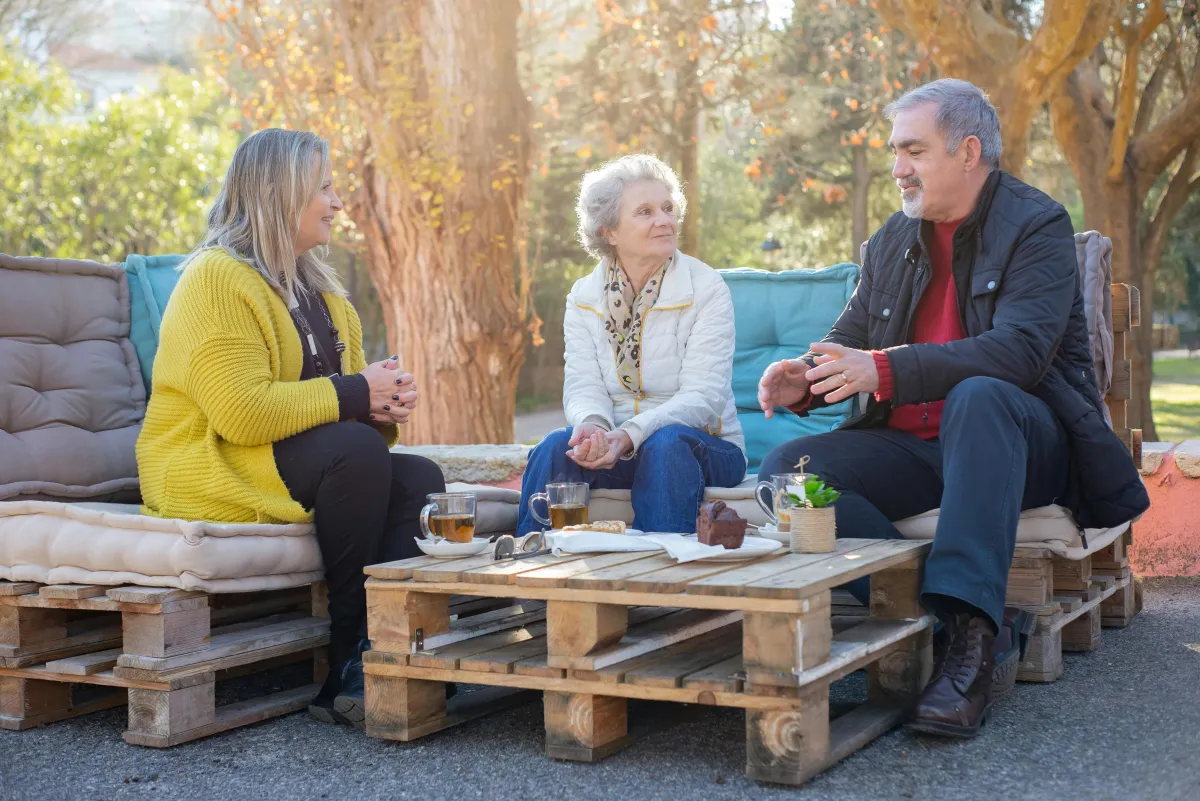Step into a world
of wellness.
Wellness inspired by the blue-zones of the world.
WHO WE ARE
BEYOND THE BLUE
Welcome to Beyond Blue Health, your compassionate guide to a well-lived life inspired by the remarkable blue zones of the world. Our inspirational wellness blog is dedicated to connecting people with the products and tips they need to enhance
their well-being and elevate their lives.
At Beyond Blue Health, we draw inspiration from the blue zones, regions known for their exceptional longevity and vibrant health. We believe that true wellness extends beyond physical fitness and encompasses emotional well-being, social connections, and a sense of purpose.
OUR MISSION
"Our mission is to curate a collection of products and tips that empower you to thrive in every aspect of your life. We believe in the power of compassion, and we carefully select and recommend products that are ethically sourced, sustainable, and align with our
values of holistic well-being."
Our Most Recent Posts

Exploring the Connection Between Blue Health Zones and Longevity
In recent years, the concept of "Blue Health Zones" has garnered attention for its potential role in promoting longevity and overall well-being. Inspired by the concept of "Blue Zones," regions known for high rates of centenarians, Blue Health Zones emphasize the importance of water environments in supporting long and healthy lives. This blog delves into the connection between Blue Health Zones and longevity, exploring how interaction with water can contribute to a longer, healthier life.
1. Understanding Blue Health Zones
Blue Health Zones are areas where the integration of water bodies—such as oceans, lakes, rivers, and urban water features—is central to the community's lifestyle. These zones highlight the benefits of spending time in and around water, incorporating natural water features into urban planning, and fostering water-related activities that enhance physical and mental health.
Characteristics of Blue Health Zones:
Proximity to Water: Residents live near or regularly access natural water bodies.
Water-Based Activities: Community activities and recreational options involve water, such as swimming, boating, or water sports.
Water-Integrated Urban Design: Cities and towns incorporate water features into parks, public spaces, and infrastructure to encourage engagement with water.
2. The Science Behind Water and Longevity
Research has shown that interaction with water can positively impact various aspects of health, contributing to increased longevity. Here’s how:
Stress Reduction and Mental Health: Spending time near water has been shown to lower cortisol levels, reduce anxiety, and improve mood. Chronic stress is linked to numerous health issues, including heart disease and hypertension, which can affect longevity. By mitigating stress, water environments contribute to a healthier, longer life.
Physical Activity and Fitness: Water-based activities, such as swimming, kayaking, and even walking by the water, promote cardiovascular health, muscular strength, and flexibility. Regular physical activity is associated with a lower risk of chronic diseases, including diabetes and heart disease, which can extend lifespan.
Enhanced Cognitive Function: Interaction with water has been linked to improved cognitive function and creativity. Maintaining cognitive health is crucial for quality of life as we age, potentially contributing to longevity.
Social and Community Engagement: Blue Health Zones often foster a sense of community through social activities centered around water. Strong social connections are associated with better mental health and increased longevity. Engaging in community activities can provide emotional support and reduce feelings of isolation, which positively impact overall well-being.
3. Examples of Blue Health Zones and Their Longevity Benefits
Coastal Regions: Areas like Okinawa, Japan, and the Mediterranean coast are known for their high number of centenarians. Residents often live in close proximity to the sea, benefiting from a diet rich in seafood, a relaxed lifestyle, and frequent physical activity related to water.
Urban Waterfronts: Cities like Copenhagen and Vancouver incorporate extensive waterfronts and public water features into their urban planning. Residents have easy access to water-related recreational activities and green spaces, which contribute to their physical and mental health.
Rural Water Retreats: Regions with natural springs, lakes, and rivers provide opportunities for relaxation and recreation. The tranquility and natural beauty of these areas support mental well-being and encourage outdoor physical activities.
4. How to Embrace Blue Health Principles for Longevity
Even if you don’t live in a designated Blue Health Zone, you can integrate Blue Health principles into your lifestyle:
Incorporate Water into Your Environment: Add elements such as fountains, indoor water features, or aquariums to create a calming atmosphere in your home.
Engage in Water-Based Activities: Take advantage of opportunities for swimming, kayaking, or simply spending time by natural water bodies to stay active and reduce stress.
Plan Regular Outings: Visit parks, lakes, or coastal areas to immerse yourself in nature and benefit from the calming effects of water.
Advocate for Water-Integrated Design: Support local initiatives that promote the inclusion of water features in community planning and urban design.
Practice Mindful Relaxation: Use water-based activities like soaking in a bath or listening to the sound of flowing water as part of your relaxation routine.
5. The Future of Blue Health Zones and Longevity
As awareness of Blue Health Zones grows, there is potential for more communities to adopt practices that integrate water into daily life and urban design. By promoting access to clean and engaging water environments, we can support healthier lifestyles and potentially increase longevity.
Embracing the principles of Blue Health Zones can help you harness the benefits of water to enhance your well-being and support a longer, healthier life. By appreciating and incorporating water into your lifestyle, you can enjoy the many advantages that these unique environments offer.
One or more of the links above are affiliate links, meaning, at no additional cost to you, we will earn a slight commission if you click through and make a purchase. Each of these products is chosen by a trusted member of our team.
Email: partnerships@beyondbluehealth.com
Site: www.beyondbluehealth.com
